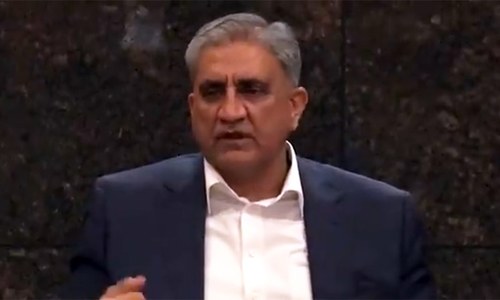Pakistan’s economy is passing through another rough patch. The slowdown caused by the fiscal and monetary adjustments carried out during the last year or so have ruffled the businessmen whose profits have nosedived on soft consumer spending, increased the cost of doing business and forced key industries to slash production and let chunks of their workforce go.
On top of that, the so-called accountability campaign by the National Accountability Bureau (NAB) against corruption spawned fear and uncertainty in the business community. More importantly, it caused a logjam in the officialdom that led to inordinate delays in the implementation of decisions made and commitments given to the businesses. It was but natural in these circumstances that some business leaders, who otherwise avoid making public comments on a government’s performance, were seen criticising the present administration on TV channels and in newspapers.
Given the level of frustration and anxiety in the business community, it was hardly surprising to see that the debate on the army chief’s dinner invitation to 20 corporate leaders from Karachi, Lahore and Faisalabad to discuss the economy and share ideas for revival of growth largely focused on running the ongoing stabilisation plan and predicting an outburst of complaints (by the businessmen) against the government.
Even the meeting of Prime Minister Imran Khan with the leaders of various chambers of commerce and industry next morning, which was planned several days ago, was seen in the context of the outcome of the previous night’s interaction between General Qamar Javed Bajwa and the corporate sector. And the decisions made on that morning are also being seen in the same context: forced upon the government by the military.
The government cannot stabilise the economy and grow it without private investments, which will not come unless the investors have confidence in the decision makers
Indeed, the participants vented their frustration over the delays in implementation of decisions related to ease and costs of doing business, as well as the negative impact of interference of the accountability watchdog in businesses on the investor sentiments. But, according to the four participants Dawn spoke with, there was no ‘outburst of emotions’.
“It was more a confidence-building measure, an effort to close the growing gap between the businessmen and the government’s economic team through a candid dialogue between the two sides,” one participant said. “We shared our concerns and suggestions to improve the economy and the government gave us a detailed overview of the impact of the economic policies they’re implementing, and the constraints they are facing in supporting the businesses because of the International Monetary Fund (IMF) programme conditions.”
Another participant said the army chief had shot down a proposal to set up a committee to liaise between the businessmen and the government for better coordination on issues facing the former and told them to talk directly with the country’s economic managers.
“In short, we have been assured that the government will ensure implementation of the promises made to us, and remove the structural and governance impediments short of breaching the conditions of the IMF programme. So we are now expecting announcements in the next few days on issues like a hassle-free provision of subsidy on electricity and imported gas used by the industry, and the discounting of the refund bonds.”
Without getting into the debate if the army chief should have “acted” as a bridge between the two sides or why the government economic team has not been able to maintain a confidence-inspiring interaction with the business community, it can safely be assumed that the majority of the participants came away rather satisfied with the outcome.
There is no denying the fact that the economy is still in a precarious state in spite of some early signs of improvement. Pakistan’s long-term bond yield has dropped below the policy rate for the first time in eight years, raising expectations of a little bit of monetary easing in the second half of the current fiscal year.
The current account and trade deficits have narrowed significantly – though primarily because of massive import contraction as exports are not showing any encouraging sign of recovery. Inflation has likely peaked, inflationary expectations have moderated and foreign portfolio investment in public debt is rising.
And though the Federal Board of Revenue has missed its indicative tax target for the first quarter by 10 per cent, the growth in the collection in present economic conditions is commendable. Analysts expect the shortfall in tax revenues to be offset by an increase in non-tax revenues. Thus, it is generally believed that the government may have met almost all IMF targets for the first quarter of the present fiscal year.
Still, the early signs of “recovery”, however encouraging they may be, are fragile, and the economy remains just a shock away from total collapse. To build on these improvements and put the economy on a path of sustainable recovery, the government needs to bridge the trust deficit with the businessmen.
The army chief could do only so much. It is for the government’s own economic team to build this bridge by making good on its commitments, improving the governance and removing small structural irritants impeding businesses. After all, it cannot stabilise the economy and grow it without private investments, which will not come unless the investors have confidence in the decision-makers.
Published in Dawn, The Business and Finance Weekly, October 7th, 2019














































